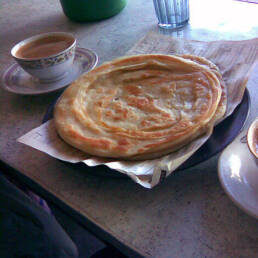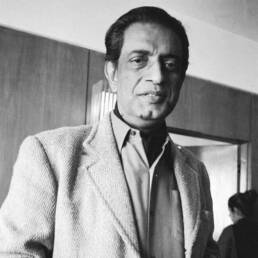In the autumn of 1950, the Indian army set out for its maiden overseas mission since independence. Almost 70 years later, the man who led the team was officially commemorated as the Korean War “Hero of the Month” by the South Korean Ministry of Patriots and Veterans Affairs.
Dr. Arcot G Rangaraj, a medical officer in the Indian para battalion, was one of the first paratroopers in the India army. His exceptional service during the WWII as part of the Manipur front eventually earned him a promotion as the head of the 60th Parachute Field Ambulance unit.
After the partition of Korea post WWII, North and South Korea entered into a conflict over sovereignty while a Cold War was brewing between the Soviet Union and the United States.
While South Korea was backed by the United States under a resolution of the United Nations, the Northerners were assisted by China and the Soviet Union.
Pt. Jawaharlal Nehru, the then prime minister and minister for external affairs of India took a firm step to prevent the UN from adopting a policy that might have led to a prolonged war between the neighboring countries.
As the UN requested its members for military assistance against North Korea, Nehru sent the 60th Parachute Field Ambulance unit to support South Korea.
The 346-men strong team led by Rangaraj provided medical support to the 27th Commonwealth British Brigade immediately upon their arrival. As a consequence, the medical unit was in jeopardy likely to lose their equipment and medical supplies.
As the Chinese troops breached the UN lines, the medical unit having no allocated transport, somehow managed to get an abandoned train with a functioning steam engine.
With Rangaraj’s tremendous presence of mind, the team was able to escape to Seoul before the connecting bridge on the Han River was blown up by the Chinese and North Korean troops. Despite a treacherous winter condition, the medical unit refused to leave the wounded.
Rangaraj was one of the 12 Indian officers in Operation Tomahawk, who volunteered to jump into the contact zone between the Han and Imjin rivers when the American troop planned to trap the enemy troops.
America’s strategy didn’t work out as expected as the enemy troops kept growing in numbers. However, the Indian medical unit astonished the American troops with their selfless service on the battlefield.
In that bone-chilling condition, the Indian medical unit survived on only tea and biscuits and performed 103 surgeries on the wounded American soldiers and saved at least 50 lives. They also trained Korean doctors and nurses in four different hospitals during this time.
Their selfless humanitarianism act earned them the title “Angels in Maroon Berets”. After surviving for 39 months, the 60th Parachute Field Ambulance unit returned home. Rangaraj was awarded Maha Vir Chakra by the Indian government for his services.
Various special military honors followed from South Korea, the United States, and the United Nations. In July 2020, South Korean Ministry of Patriots and Veterans Affairs officially announced Rangaraj as the Korean War “Hero of the Month”.
Lieutenant Colonel Dr Arcot G Rangaraj’s heroics during the Korean war went beyond his line of duty. His benevolent acts are examples taught in South Korean schools as part of a glorious history. But sadly enough, in his homeland, he remains a largely unknown figure.
Sources:
Between the Blocs: India, the United Nations, and Ending the Korean War by Robert Barnes
Against All Odds: The Forgotten Tales of Independent India’s Tryst with Peacekeeping by Colonel (Doctor) DPK Pillay
Image courtesy:
https://www.indembassyseoul.gov.in
https://www.koreatimes.co.kr/www/nation/2022/03/113_325480.html
https://kapyongkorea.wordpress.com/2012/06/12/the-mash-heros-youve-never-heard-of/
Wikimedia
Manhhai/Flickr




